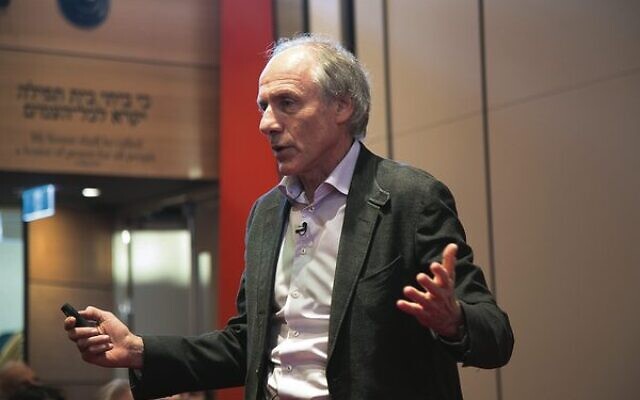Former chief scientist Alan Finkel talks clean energy
Former Australian chief scientist Alan Finkel presents compelling insights, advocating for Australia to lead the global transition to clean energy in his latest book.
In his latest book, Powering Up: Unleashing the Clean Energy Supply Chain, former Australian chief scientist Alan Finkel presents compelling insights, advocating for Australia to lead the global transition to clean energy. Finkel emphasises the urgent need to remove barriers that hinder nations from transforming into “electrostates” from traditional “petrostates”.
A “petrostate”, which is a term that has been used for decades, describes countries that get a large percentage of their income from exporting crude oil. However, Finkel told The AJN, “the world’s going to change,” as “eventually we will be weaning ourselves off fossil fuels and we will be replacing coal, oil and gas with electricity made from zero-emission sources such as solar, wind, large-scale hydroelectricity, and in some countries, nuclear electricity.”
Finkel explained the concept of an “electrostate”, which involves shipping renewable energy in the form of hydrogen to countries like Japan and South Korea. Hydrogen, generated by splitting water using solar and wind electricity, serves as an energy carrier and can be utilised as a clean alternative to natural gas or traditional fuels. He called this method, “shipping sunshine”.
Finkel’s involvement in the energy industry began with his appointment to review the national electricity market, popularly known as the Finkel review. This led to his leadership in the development of the national hydrogen strategy and later, as the lead in the creation of the national low-emissions technology roadmap. After concluding his tenure as chief scientist in 2020, Finkel continued to serve as a special adviser to the Australian government for low-emissions technologies.
In addition to shipping renewable energy and producing clean fuels, Finkel explained that Australia can also contribute to the decarbonisation of various industries. Finkel used the example of steelmaking, which accounts for a staggering eight per cent of global carbon dioxide emissions. Traditionally, Australia has exported iron ore and coal for steel production overseas. However, by substituting coal with hydrogen in the iron-making process, Australia can add value domestically and ship pure iron instead, reducing emissions.
Finkel noted that there are “good reasons to be optimistic”, as “we’re in a clearer policy position globally than we have been previously,” adding, “Australia has got legislative targets, which helps because they are working hard to implement changes.”
He told The AJN, “We are beyond talk now,” explaining that “there’s a lot of international [finance] being applied”.
“Last year, for the first time, the global investment in clean technologies exceeded the global investment in fossil fuels,” Finkel said.
“Last year, the global investment in clean technologies was $US1.1 trillion; it’s a lot of money, and this year, it’s on track to increase to $US1.7 trillion.”
Finkel also explained that he tried to write Powering Up so that it can be read “cover to cover … and I don’t think you’ll be lost”. He even received feedback from a reader who said, “he will use it as his Bible going forward”.


comments